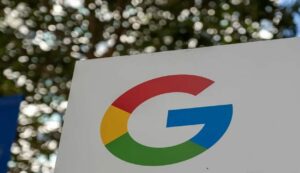In a US antitrust complaint, Google claims it may relax search agreements
US: In response to a U.S. finding that it illegally controls internet search, Alphabet’s Google suggested on Friday that its agreements with Apple and other companies be loosened to allow Google to be the default search engine on new devices.

Compared to the government’s attempt to force Google to sell its Chrome browser in the internet search antitrust lawsuit, the idea is much more limited.
Following his decision that the firm has an unlawful monopoly in online search and associated advertising, U.S. District Judge Amit Mehta in Washington advised Google to proceed carefully when determining what the corporation needs to do to restore competition.
Google believes the next “remedies” phase should concentrate on its distribution agreements with browser developers, mobile device makers, and cellular carriers, even if it intends to challenge that decision at the conclusion of the case.
The court concluded that the agreements provide Google a “major, largely unseen advantage over its rivals” and that Google’s search engine is pre-installed on the majority of U.S. devices.
According to the court, it is difficult to break the agreements, particularly for Android manufacturers who have to consent to install Google search in order for their devices to include Google’s Play Store.
Google said in court documents that it could resolve that by making them nonexclusive and, for Android phone makers, unbundling its Play Store from Chrome and search.
Google’s plan, in contrast to the government’s, would not terminate revenue-sharing arrangements, which provide a part of Google’s search user ad income to the software and device businesses that display it as the default search engine.
Mozilla, the company that creates Firefox, and other independent browser makers have said that the money is essential to their business. According to estimates, Apple’s deal with Google brought it $20 billion in 2022 alone.
As a result of Google’s proposal, Mehta will convene a trial in April in which the U.S. Department of Justice and a group of states will attempt to demonstrate the necessity for comprehensive remedies, such as forcing Google to sell off Chrome and maybe its Android mobile operating system.
Prosecutors also want Google to stop investing in search rivals and query-based artificial intelligence technologies, stop paying to be the default search engine, and stop licensing its technology and search results to competitors.
The suggestions, according to the prosecution, are meant to encourage innovation in online search. Mehta discovered that Google’s monopoly on the market prevents rivals from obtaining the search data required to enhance their offerings. Prosecutors also want to stop Google from expanding its search engine supremacy into artificial intelligence.





